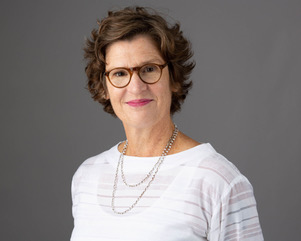Authored by Jennifer Howe, L.C.S.W.
Bowen Family Systems Theory often seems counter-intuitive, making it sometimes difficult to grasp, and rarely self-evident. Comprehending an emotional systems perspective of families as a way of understanding engagement between people has little to do with stated intentions, and thus provides a constant challenge. I am always so impressed by certain individuals for whom the theory’s concepts immediately make sense, and who are then able to “see” relatively clearly in their lives many of the patterns Bowen described. While the concepts are theoretically clear to me, recognizing the emotional process in my own life remains frustratingly elusive.
One of the more challenging aspects of understanding this theory is acknowledging and understanding the powerful life forces that come into play at the birth of a child, and then correspondingly, at the death of a parent. Without grasping a deep understanding of the evolutionary and instinctual drives that underlie our most basic beliefs, it is difficult to fully appreciate and honor the ways emotional family process plays out amongst us. Add to this the difficulty in even obtaining the factual information that would illuminate how these drives have played out throughout prior generations.
In my own life, trying to understand Bowen’s idea of unresolved emotional attachment has been particularly slippery. Like an elusive scent floating in the air, it can be a clear awareness one second, and then quickly evaporate as the entrenched family belief system takes hold once again. I have heard it described as unresolved dependence, which slightly helps to clarify the concept. Does one ever resolve our dependence on other people? Maybe the problem is the pejorative connotation I give to “unresolved”, when none was ever intended. Bowen’s concepts are meant to describe not prescribe. Is our unresolved emotional attachment to our parents just a fact of life and the degree to which this exists, determines fundamental aspects of our experience of life? Maybe that is all we need to know; that as differentiation decreases and fusion increases, life will be harder, more fraught, more emotional, and that simply is one’s lot in life to recognize and improve upon?
For me, recognizing my reactivity has been much easier to “see” than recognizing its relationship to my unresolved emotional attachment. I suppose I should be able to appreciate and recognize more fully the degree to which having two children in the first 5 years of my parents’ marriage would have strained and challenged my two “youngest children” parents. Forced to depend on pseudo self with little economic capital, these two must have been a particularly terrified duo. And I, as their first born, seemed to have been particularly susceptible to internalizing that great fear of surviving on “one’s own”, even though I was protected by the birth of my brother, who then took the brunt of the family focus.
Today, with my parents, that history is submerged. I consciously feel love and respect for them, despite what could objectively be seen as fairly flawed parenting. I understand and recognize the challenges they faced and am blown away by the success they did have in parenting 3 children. This doesn’t change the deep-seeded desire that I now own, to be loved and cared for. This is my “unresolved emotional attachment”, my fear that I’m not quite up to the task of being a grown up; fear that I may lack the skills necessary to examine, weigh, challenge, and decide my own life course, when others might disagree. Striving to persevere and be clear, in the face of what all the other individuals in this world are doing is quite an undertaking! I’m not sure I’m cut out for it, but I know I don’t have a choice. Once you get the Bowen bug, there really is no turning back.




Jennifer,
You have many ideas here that I find helpful. “Like an elusive scent floating in the air”…such a
good way to describe the fleeting moments of clarity that get away before you can catch them.
Also your point that “unresolved” can be taken as a problem rather than a natural quality of emotional attachment. “Flawed parenting…” what other kind is there?
Thank you!
Stephanie Ferrera
Jennifer,
Thank you for disclosing information from your own family to illustrate this tricky concept. I’ve been thinking about the destiny of the human to deal with unresolved attachment. Both the greatest strength and the greatest weakness of our species lies in the evolutionary adaptation of living embedded in multi-generational families.